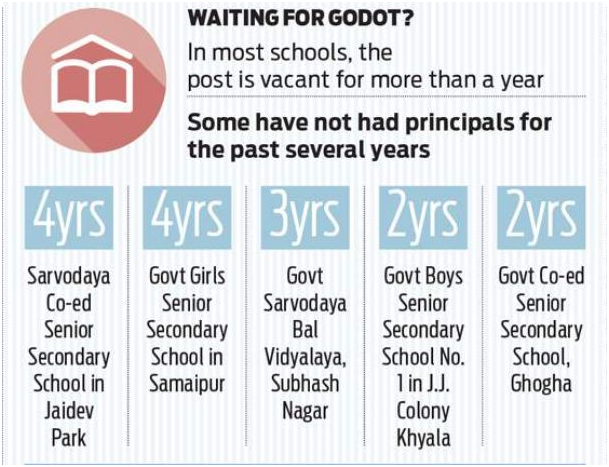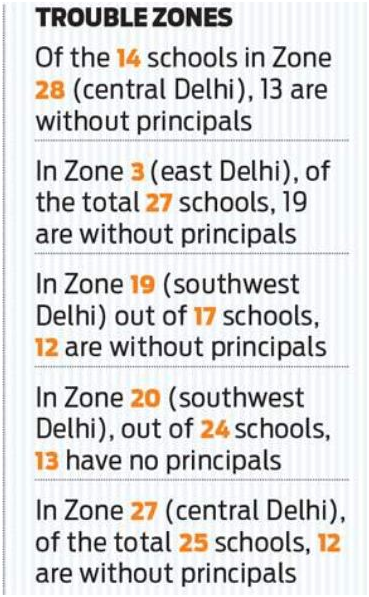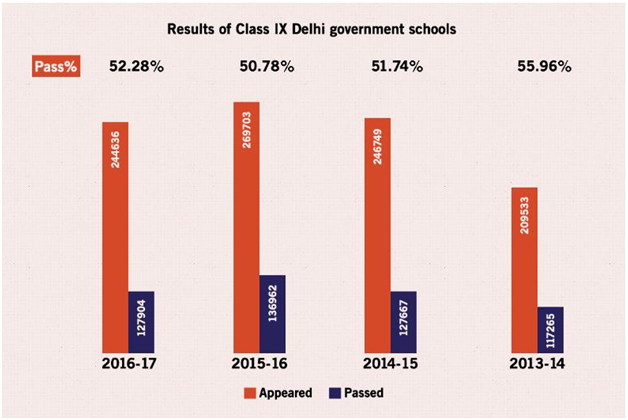The Delhi government is being lauded by the left-leaning media for their work in the education and health sector. But many organizations which have started to dig deeper into the data to verify the claims found that this is not completely true. There is no doubt that the Delhi government has increased the budget allocation on health and education, but that does not necessarily lead to improved outcomes. For instance, the Manmohan Singh government gave the job guarantee to the rural population under the MGNREGA scheme but could not improve the conditions of the people living in villages because the implementation was disastrous.
Delhi has 1,024 government schools out of which 595 do not have principals and 106 schools do not even have a post for the principal. So as per the data more than half of the public schools of Delhi are running without principals. In most of the schools, the post of the principal is lying vacant for more than a year. The Sarvodaya co-ed senior secondary school in Jaidev Park is running without a principal for last four years, similarly many government girls schools, government boys schools and government co-ed schools are running without a principal for years.


The schools in posh areas in South Delhi and New Delhi have principals but the schools in East Delhi, Central Delhi and South West Delhi which are relatively poor are discriminated. In Central Delhi, 13 schools out of 14 are without principals and in East Delhi 19 out of 27 schools does not have a principal as well. AAP government spends more than 26 percent of the state budget on education but it should also focus more on poorer regions schools.

Educational reforms in the government schools and increased budgetary allocation have won praise from the domestic and global institution. In this academic year, the government schools of Delhi with a pass percentage of 90.68 percent have outperformed private institutions, which have recorded a pass percentage of 88.35 percent. But according to a report the improved results were an outcome of the ‘filtering’ process. Almost 50 percent of the students in government schools of Delhi fails in class 9 so that only the best students can appear in the board exams. According to a survey conducted by an NGO called RTE forum found that in the 2016-’17 academic year, children in Delhi’s government schools received their textbooks in phases, over months – some reaching them six to nine months into the session, which starts in April.
So, these facts suggest that all the claims of the Delhi government fall flat when it comes to implementation. Hence, the claims made by the Delhi government is not completely true and rather than just focussing on the increase of the budget allocation, they should also focus on proper implementation.




























